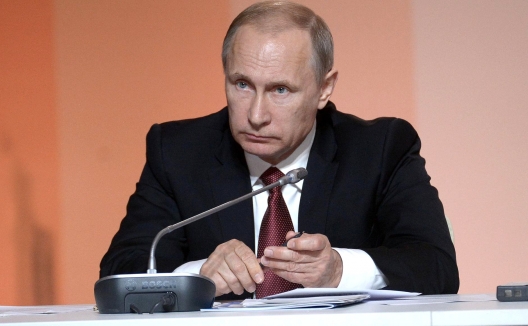 The claim is that NATO’s expansion eastward, Ukraine and Georgia’s cozying up to the West, and historically neutral Finland and Sweden’s new interest in NATO membership have enticed Russia’s aggressive behavior, culminating in the Russian invasion of Ukraine and the annexation of Crimea….
The claim is that NATO’s expansion eastward, Ukraine and Georgia’s cozying up to the West, and historically neutral Finland and Sweden’s new interest in NATO membership have enticed Russia’s aggressive behavior, culminating in the Russian invasion of Ukraine and the annexation of Crimea….
Russian claims of NATO encirclement hold little weight considering that until its March 2014 invasion of Crimea virtually no permanent NATO troops were stationed in the territory of former Soviet satellite states as is visually depicted in this infographic by the Atlantic Council.
It should not surprise anyone that recent and aspiring members would rather be part of a democratic organization, where members have an equal say and where their territory and sovereignty are regarded as important as any other members’ under Article V, rather than to be economically and militarily coerced with overarching influence in their domestic politics by an autocratic and unstable country, as many of Russia’s allies have experienced….
Russia’s abrasive influence, which is promulgated through state-sponsored cyber attacks, large and sudden military exercises, media disinformation campaigns, and sponsorship of far right and fascist groups in Europe have even impelled traditionally neutral countries, such as Finland and Sweden, to align themselves closer to NATO. When Russia practices nuclear strikes against Sweden, brazenly threatens Denmark with nuclear force, and identifies NATO as its chief threat in its military doctrine, all unilateral actions, it should not surprise anyone that NATO takes defensive measures like establishing a missile defense shield in Romania..
NATO should not be intimidated by the argument, former National Security Advisor, Zbigniew Brzezinski described as, “the argument that if we respond symmetrically to unilateral actions by the other side, it is us who is somehow provocative and precipitating a war. On the contrary. Not doing so is the most likely way of precipitating a war.” NATO should instead be emboldened and invigorated in its purpose and legitimacy as an alliance.
Lucas Della Ventura has worked in different capacities at the U.S. State Department, Atlantic Council, and the U.S. House of Representatives. All views and opinions expressed are the author’s alone.
Image: Russian President Vladimir Putin, July 21, 2016 (photo: Office of the President of Russia)
